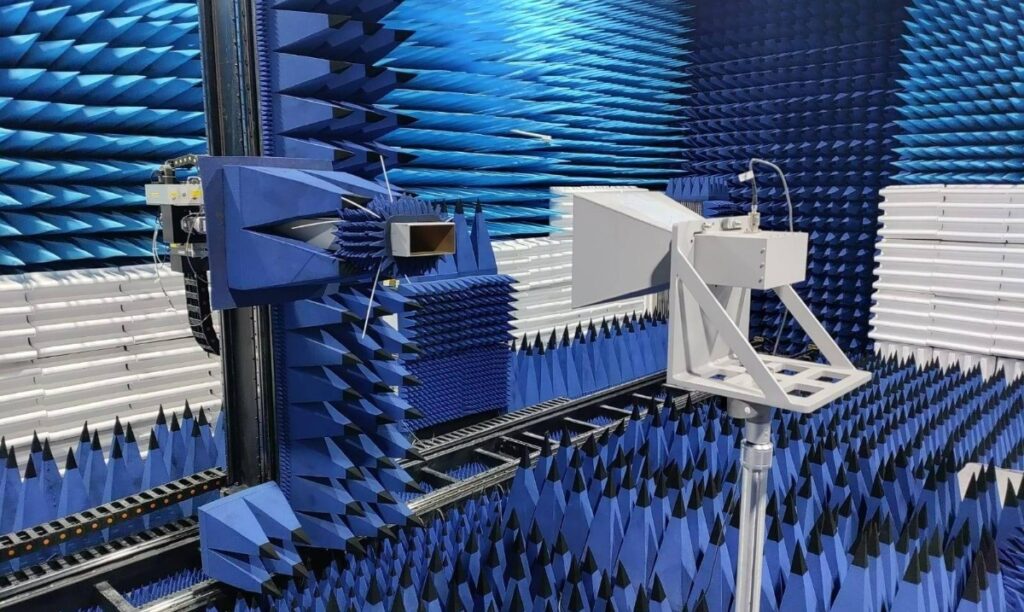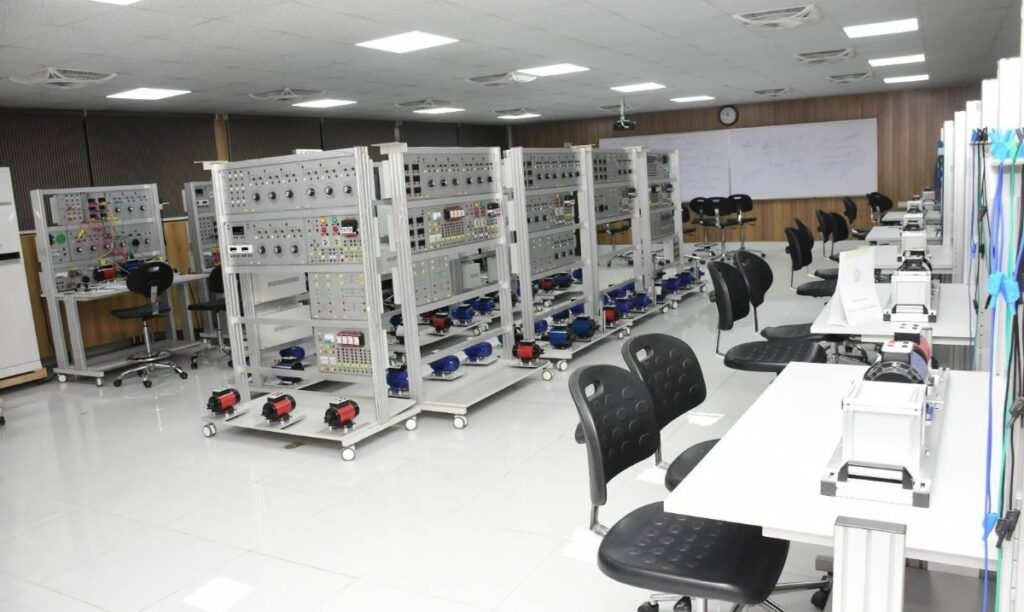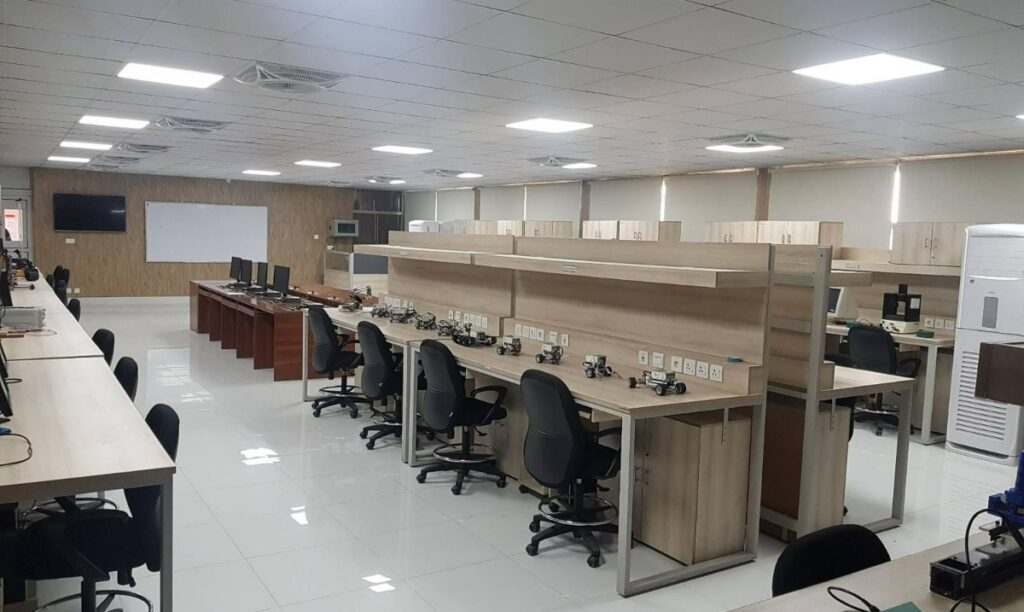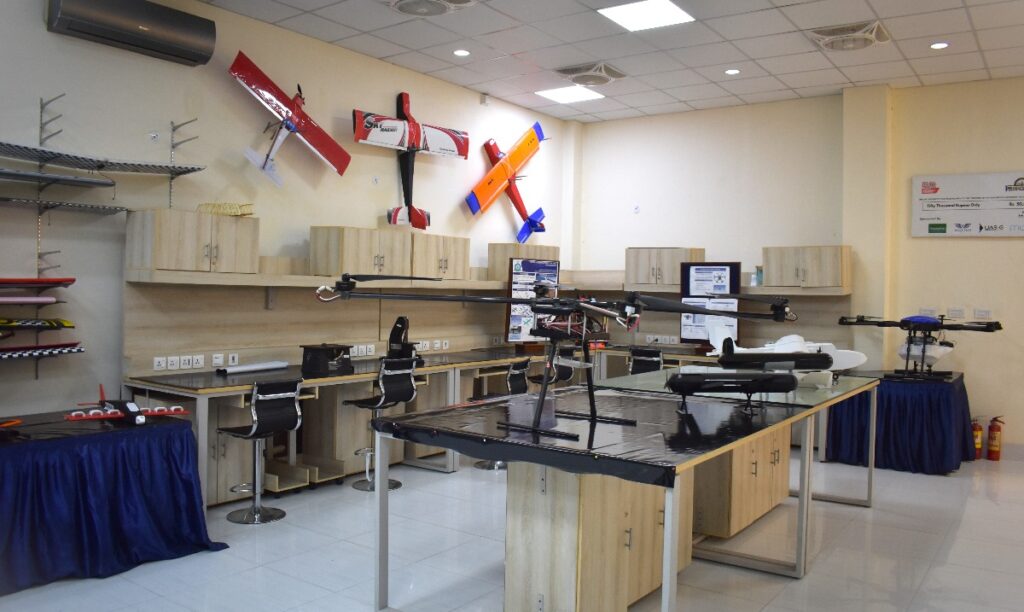

Call for Papers
4th International Conference on Digital Futures and Transformative Technologies (ICoDT2)
About the Conference
4th International Conference on Digital Futures and Transformative Technologies (ICoDT2) aims to provide a superior international forum for sharing knowledge and results in theory, methodology, and applications of Intelligent Systems and Aerospace Technologies. The Conference looks for significant contributions to all major fields of the Intelligent and Aerospace Systems in theoretical and practical aspects. The aim of ICoDT2 is to provide a platform to researchers and practitioners from both academia as well as industry to meet and share cutting-edge developments in the field. The conference is proudly hosted by National University of Sciences & Technology (NUST), Pakistan. It invites contributions in the areas of Artificial Intelligence, Cyber Security, Embedded / IoT Systems, Flight Dynamics, Guidance Navigation & Controls (GNC), Autonomous Systems, Materials, Structures, Propulsion, Turbo Machinery, and Space Technologies.
The conference is proudly hosted by National University of Sciences & Technology (NUST), Pakistan and technically co-sponsored by IEEE.
Submission Guidelines
Full papers are welcomed in the thematic areas listed below. All papers must be original and not simultaneously submitted to another journal or conference.
Submit Paper on EasyChair
List of Topics
The conference invites contributions in the areas of Applied Engineering, including:-
–Artificial Intelligence
–Information Security, Computing and Embedded / IoT Systems
–RF, Microwave and Radar Engineering
–Aero / Flight Dynamics, Guidance Navigation & Controls (GNC) and Autonomous Systems
–Manufacturing, Materials and Structures
–Propulsion, Turbomachinery and Space Technologies
1. Artificial Intelligence
- Explainable AI (XAI)
- Federated Learning
- Adversarial Machine Learning
- Self-supervised Learning
- Human-centered AI
- Model Compression
- Multimodal Interaction
- Digital Human
- Generative and Composite AI
- AI Applications
- Meta-learning
- Adaptive Reinforcement Learning
- Ensemble Learning
- AI for Aerospace, Propulsion and Advanced Structures
2. Information Security, Computing and Embedded / IoT Systems
2A: Cyber Security
- Security of Network Centric Aviation Systems
- IoT Security
- Embedded Systems Security
- Autonomous Security
- Cryptography
- Malware Analysis & Digital Forensics
- Network Security
- Cyber Threat Intelligence
- Android / IoS Security
2B: Computing and Embedded / IoT Systems
- Emerging Sensor Technologies, Networks and Applications
- Cyber Physical Systems / IoT
- Smart Sensors for Industry 4.0 and beyond
- Smart Dust & Edge Computing / Networking
- Neuromorphic Computing
- Robotic Process Automation
- AR / VR / XR / WebAR Systems
3. RF, Microwave and Radar Engineering
- Antenna Systems and Architectures
- Millimeter Wave Antennas
- MIMO Antennas
- RFID Tags, Antennas, Sensors and Systems
- Body Propagation, Effects of Biological Tissues on Propagation
- Microwave Filters, Reconfigurable Filters, Filters for 5G
- Microwave Active and Passive Devices
- Power Amplifiers, Power Dividers and Couplers
- Radar Signal Processing
4. Aero / Flight Dynamics, Guidance Navigation & Controls (GNC) and Autonomous Systems
- Aircraft Dynamics, Performance, Stability and Controls
- Fluid-Structure Interactions
- Supersonic / Hypersonic Boundary Layer Transition
- Modelling and Simulations of Hypersonic Flows
- Transonic Buffet
- Shock Wave / Turbulent Boundary Layer Interactions
- Unmanned / Hypersonic Vehicles, Air Taxi / Air Mobility
- Hypersonic Vehicles
- Guidance, Navigation and Controls (GNC)
- Swarm Formation
- Autonomous Flight Controls
- Launch Vehicle, Missile, and Projectile Flight Mechanics
- Missile and Trans-Atmospheric Vehicle Dynamics, Stability and Control
5. Manufacturing, Materials & Structures
- Manufacturing Processes, Materials and Structure Optimisation
- Additive / Smart Manufacturing for Aerospace Applications
- Smart and Adaptive Materials: Design, Synthesis and Applications
- Structural Health Monitoring in Aerospace Vehicles
- Composite Materials: Mechanics, Modeling, and Applications
- Structural Dynamics and Aero Elasticity
- Aircraft Structural Design
- Emerging Trends in Non-Destructive Testing (NDT)
- Damage and Failure Analysis
- Qualification and Certification
- Computational Methods for Integrity Assessment and Optimisation
- Quality & Reliability Engineering
- Reverse Engineering and Rapid Prototyping
- Computer Aided Manufacturing (CAM)
6.Propulsion, Turbomachinery and Space Technologies
- Turbomachinery Design and Performance Analysis
- Mathematical Modelling of Turbo-Machinery
- Combustion Analysis
- Heat Transfer Analysis of Turbo-Machineries
- Exhaust / Emission Analysis and Mitigation Techniques
- Compressor / Turbine Blade Performance Improvement
- Energetic and Exegetic Analyses of Engine Cycles
- Engine Knocking and Other Issues (Analysis and Mitigation Techniques)
- Novel Engine Cooling Techniques
- Electric Propulsion Systems
- Space Missions, Systems and Architecture
- Satellite Subsystem Design
- Systems and Technologies for CubeSats
- Electric Thrusters Designing
- Image and Signal Processing for Remote Sensing
- Space Security, Payload, Stability and Sustainability
- Satellite Constellation Design and Management
- Satellite Development and Manufacturing
- Remote Sensing Instruments and Sensors
- Rocket Engines and Rocket Propulsion
- Guidance, Navigation and Control of Satellite
- Global Navigation Satellite Systems (GNSS)






Contact Us:
Phone:
(0923) 9501500 Ext : 7301
Email:
icodt2@cae.nust.edu.pk
Address:
NUST, Sector H-12, Islamabad
